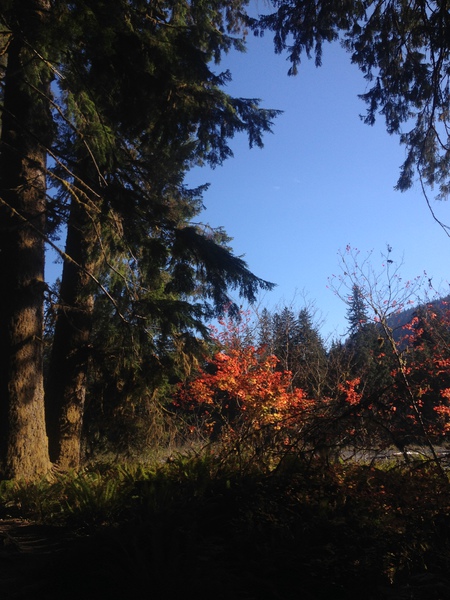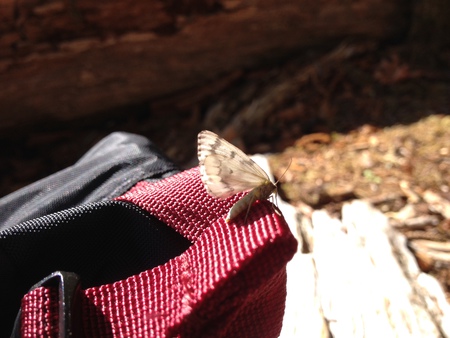Very Short Cycles
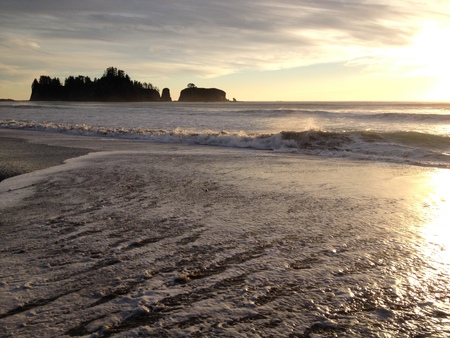
At Rialto Beach, about as as far west as you can get in the mainland states, five thousand miles of ocean throw down their weight and foam sideways like milk. The sand drinks everything but the topmost skin, which turns transparent and retreats in a solar scatter until it’s drawn beneath the flickering curtain of the next wave’s shadow. In the late light their undersides come high and midnight blue.
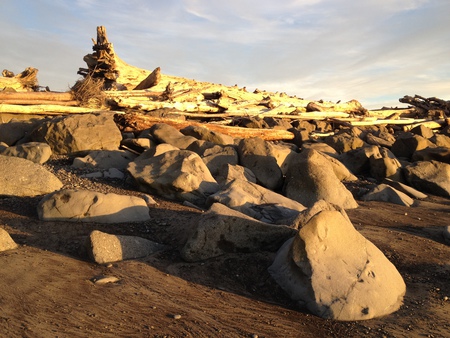
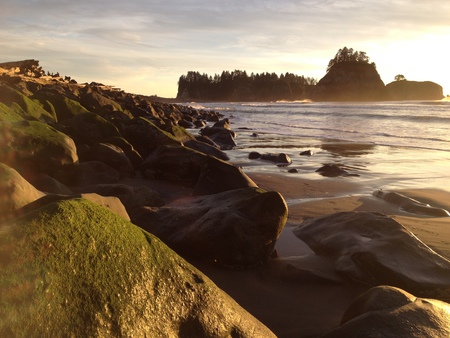
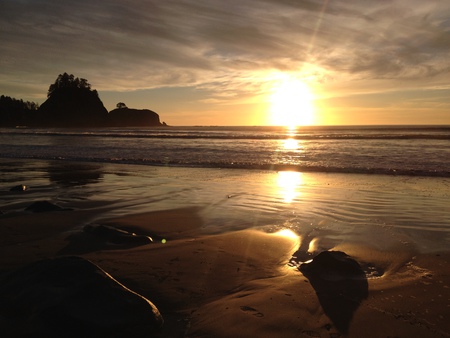
I spent three nights on the Olympic Peninsula, trying to fix a pivot to the end of this novel that’s been going on almost five years. J. had sent me John Luther Adams writing about his studio, so I thought about that, and about Xie Lingyun, ate a lot of salad and Greek yogurt from the local grocery and was able in general to keep my head quiet. I had brought a couple of books but the American ones were too close to my own project and I ended up taking refuge in Das Schloss, which I’d grabbed on impulse on my way out the door, not having read it end-to-end in twenty years and never in German. It turns out to be a good text for a hiatus from a job.
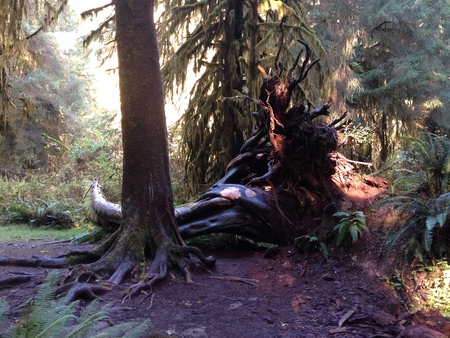
»Es ist schwer mit euch«, sagte K. und verglich wie schon öfters ihre Gesichter, »wie soll ich euch denn unterscheiden? Ihr unterscheidet euch nur durch die Namen, sonst seid ihr einander ähnlich wie« – er stockte, unwillkürlich fuhr er dann fort -, »sonst seid ihr einander ja ähnlich wie Schlangen.« Sie lächelten. »Man unterscheidet uns sonst gut«, sagten sie zur Rechtfertigung. »Ich glaube es«, sagte K., »ich war ja selbst Zeuge dessen, aber ich sehe nur mit meinen Augen, und mit denen kann ich euch nicht unterscheiden. Ich werde euch deshalb wie einen einzigen Mann behandeln und beide Artur nennen, so heißt doch einer von euch. Du etwa?« – fragte K. den einen. »Nein«, sagte dieser, »ich heiße Jeremias.« – »Es ist ja gleichgültig«, sagte K., »ich werde euch beide Artur nennen. Schicke ich Artur irgendwohin, so geht ihr beide, gebe ich Artur eine Arbeit, so macht ihr sie beide, das hat zwar für mich einen großen Nachteil, daß ich euch nicht für eine gesonderte Arbeit verwenden kann, aber dafür den Vorteil, daß ihr für alles, was ich euch auftrage, gemeinsam ungeteilt die Verantwortung tragt. Wie ihr untereinander die Arbeit aufteilt, ist mir gleichgültig, nur ausreden dürft ihr euch nicht aufeinander, ihr seid für mich ein einziger Mann.« Sie überlegten das und sagten: »Das wäre uns recht unangenehm.« – »Wie denn nicht«, sagte K., »natürlich muß euch das unangenehm sein, aber es bleibt so.«
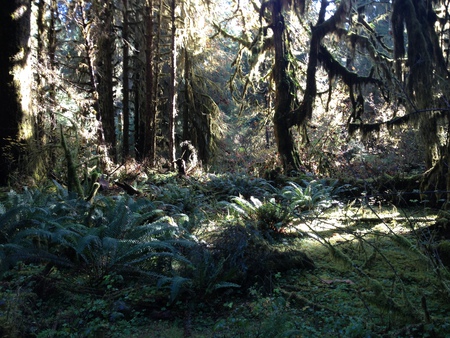
(as Anthea Bell puts it:)
‘I’m going to have a hard time with you two,’ said K., comparing their faces yet again. ‘How am I to know which of you is which? The only difference between you is your names, and apart from that’—he hesitated—‘apart from that you’re as like as two snakes.’ They smiled. ‘Oh, other people find it easy to tell us apart,’ they said. ‘I believe you,’ said K. ‘I’ve seen that for myself, but then I have only my own eyes, and I can’t distinguish between you with those. So I shall treat you as a single man, and call you both Artur, which is the name of one of you—you, perhaps?’ K. asked one of the assistants. ‘No,’ he said, ‘my name is Jeremias.’ ‘Well, never mind that,’ said K, ‘I shall call you both Artur. If I send Artur somewhere you’ll both go, if I give Artur a job to do you’ll both do it, which from my point of view will be a disadvantage in that I can’t employ you on separate tasks, but also an advantage because then I can hold you jointly responsible for everything I ask you to do. How you divide the work between you is all the same to me, only you can’t make separate excuses. To me you’ll be just one man.’ They thought this over and said: ‘We wouldn’t like that at all.’ ‘Of course not,’ said K. ‘Naturally you’re bound to dislike it, but that’s how it’s going to be.’
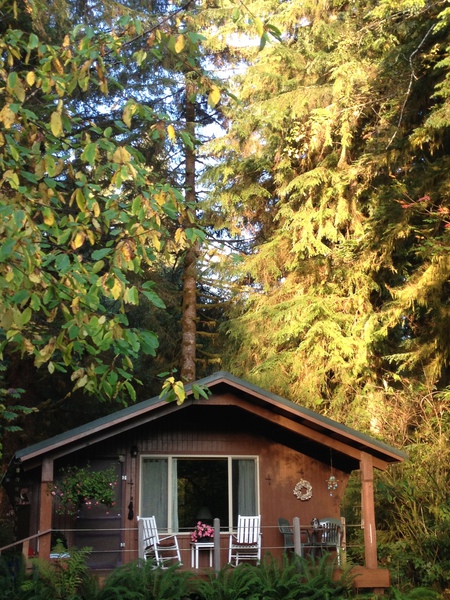

The cabin sat among huge ahistorical trees and had a river for its backyard; the whole peninsula is full of rivers. I've never lived near moving water except in Iowa, and that river was wide and slow, not at all the same thing. I spent hours writing on the bank while the morning mists burned off, dew collected on leaves, small gray birds (I still don’t know what they were) skimmed the water for bugs, and fogs blew in that were almost rain, though real rain fell only at one point overnight. The first night was the difficult one, settling in alone next to the electric heater mocked up to look like a wood stove. I don’t know if Xie Lingyun had a family with him in his retreat, but I suspect it. I know that Bai Juyi did:
When I look up, there are only clouds and trees;
When I look down--only my wife and child.
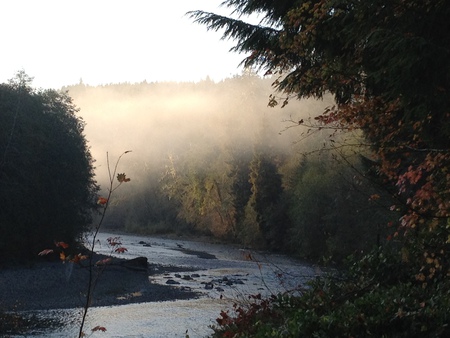
It was Bai who seemed prosaic and weak on first reading, but after some time seemed to be working toward an opening up of the ordinary, like Wordsworth. I don’t know; those comparisons stretch pretty far. It can’t really be accurate to take “Chinese recluse” as “disengaged modernist” either. I can’t do nothing, nor can I leave nothing undone; one can’t stay alone indefinitely among the ferns.
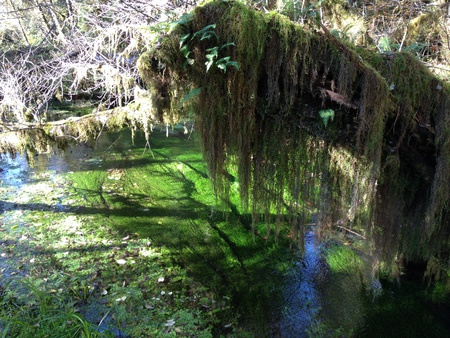
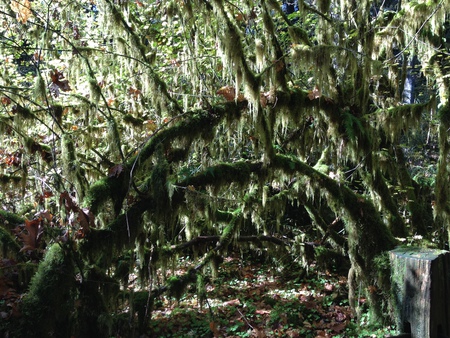
It was a “writing trip,” not a “hiking trip” (either alternative utilitarian in its way, a habit from years of scant time); still it was hard to call a halt at any particular point on the rainforest trail, hard to take my notebook out of my bag and treat the trail for that hour as another river instead of a path whose purpose was to lead somewhere; this although I knew perfectly well that it couldn’t lead anywhere in particular, since I wasn’t going to make the fifteen miles to the glaciers.
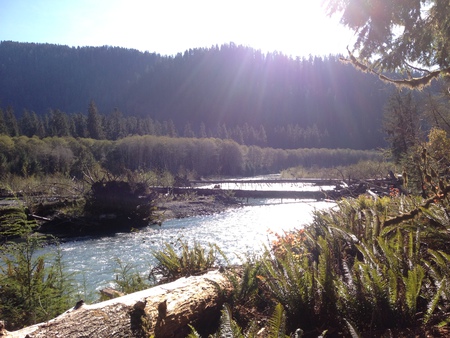
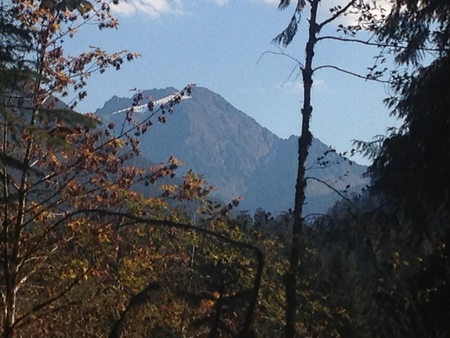
I did get far enough up the Hoh valley to glimpse Mount Olympus between the nearer peaks. The west-facing glacier seemed small; I don’t know its history but I must be one of the last to see it. Impossible not to call up a Hölderlin picture of the gods in their ice halls preparing to turn into vapor, Sublimierung. And what’s left is moss, and the elk that both Roosevelts in series set up the park to protect.
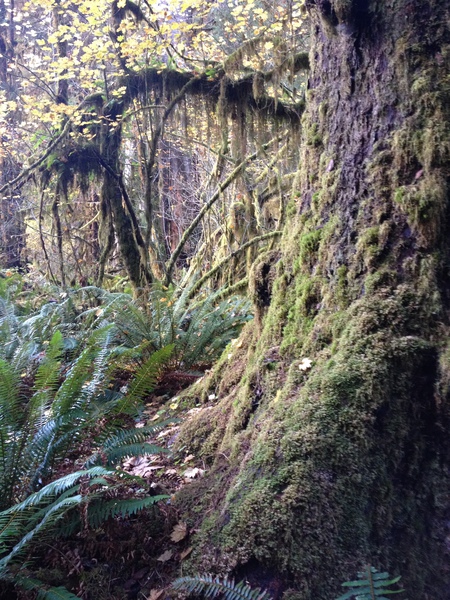
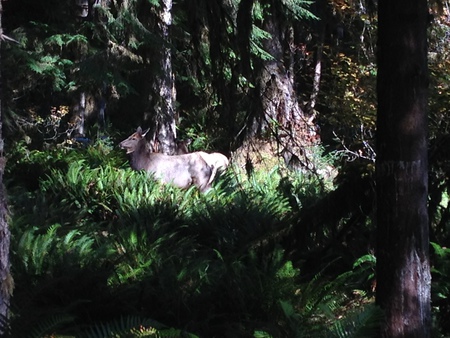
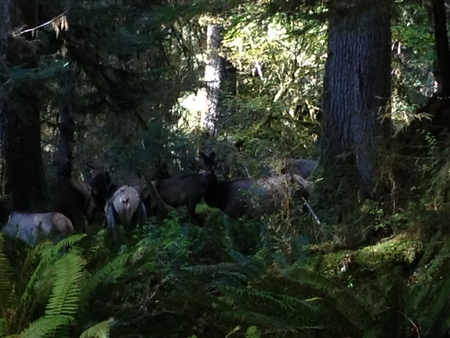
I was surprised that their movements were so much like smaller deer, but I’m always surprised at how deer move. A fellow I met on the trail told me it was a lucky thing no bulls were in the herd; this was rutting season. I once had a dry spring a year long, when I had moved back to Arizona, spent days in the mountains at liberty and put them to work on a novel that was an imitation of novels I didn’t even like much. Summer was farther afield, espresso and wine at sidewalk tables paid for with strange colorful money, in a more or less haltingly borrowed language; all those bookstores (llibreria, Antiquariat, charmed words) that went into the library which we’re still trying to figure out how to shore against the quake; and I got The Drowned Library out of it.
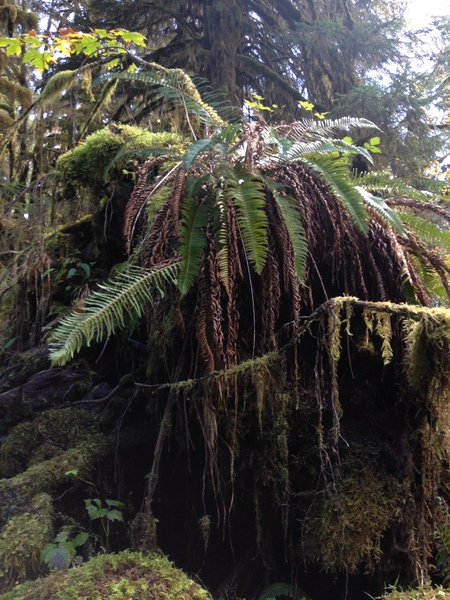
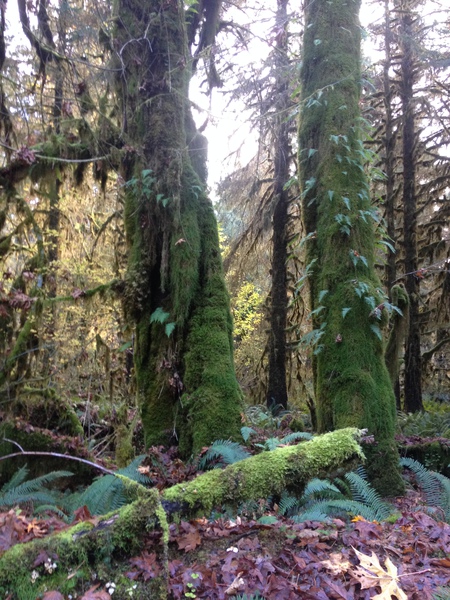
While barred clouds bloom the soft-dying day,
And touch the stubble plains with rosy hue;
Then in a wailful choir the small gnats mourn
Among the river sallows, borne aloft
Or sinking as the light wind lives or dies;
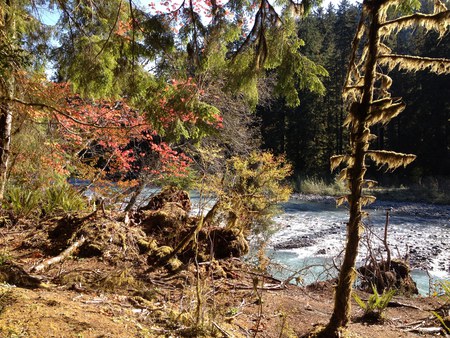
Autumn is earthier and gets mud on your shoes. All in all I’m glad of the feel of it, and of the assurance that there are longer cycles and slower movements detectable under the quick flux of water. The bank that seems fixed meanders a long way in its life. When land and sea shift such that there’s no longer a river, that also is in the nature of things.
